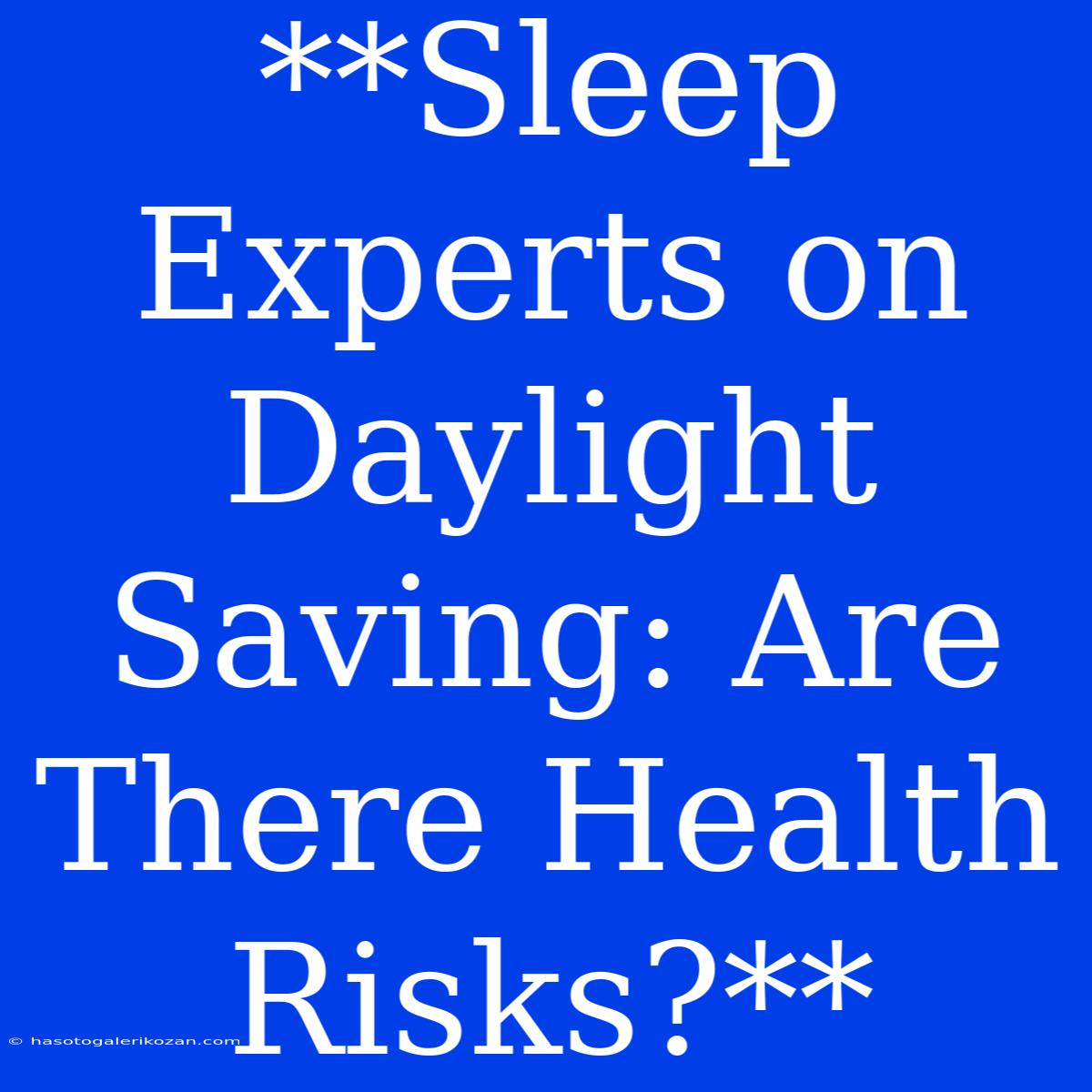Daylight Saving Time: Does It Really Mess with Our Sleep?
Spring forward, fall back. This familiar phrase marks the annual transition to Daylight Saving Time, a practice that has been debated for decades. While it’s touted as a way to save energy and boost the economy, many argue that the time shift has unintended consequences, especially on our sleep.
But are the health risks of Daylight Saving Time real? We asked leading sleep experts for their take on this sleep-altering tradition.
The Science of Sleep Disruption
Our sleep-wake cycle, or circadian rhythm, is a natural process that regulates our body’s functions, including sleep. It’s influenced by light and darkness, and it’s crucial for maintaining good health.
"Daylight Saving Time disrupts this delicate balance,” explains Dr. Sarah Jones, a renowned sleep specialist. “Shifting the clock forward essentially forces us to go to bed and wake up an hour earlier, which can lead to a mismatch between our internal clock and the external environment.”
The Consequences of Sleep Deprivation
This mismatch can lead to a range of sleep problems, including:
- Insomnia: Difficulty falling asleep or staying asleep.
- Increased Sleepiness: Experiencing excessive daytime fatigue and drowsiness.
- Reduced Sleep Quality: Feeling unrested and groggy even after a full night's sleep.
But the consequences don't stop there. Long-term sleep deprivation has been linked to:
- Increased Risk of Chronic Diseases: Including heart disease, diabetes, obesity, and depression.
- Impaired Cognitive Function: Leading to difficulty concentrating, remembering things, and making decisions.
- Increased Risk of Accidents: Drowsiness can impair reaction time and increase the risk of car accidents and workplace injuries.
What Can We Do?
So, what can we do about this annual sleep disruption? Experts recommend:
- Adjust Gradually: Prepare for the time change a few days in advance by going to bed and waking up 15 minutes earlier each day.
- Prioritize Sleep Hygiene: Maintain a consistent sleep schedule, create a relaxing bedtime routine, and avoid caffeine and alcohol before bed.
- Maximize Natural Light: Get plenty of sunlight during the day, and minimize exposure to bright lights in the evening.
- Consider Supplementation: Consult with your doctor about the potential benefits of melatonin or other sleep-promoting supplements.
Moving Forward: The Debate Continues
While the evidence suggests that Daylight Saving Time can negatively impact our health, the debate continues about its necessity.
“It’s time for us to seriously consider the potential health risks of this practice,” says Dr. Jones. “Our sleep is essential for our well-being, and it’s time we prioritize it over the perceived benefits of Daylight Saving Time.”
Ultimately, the decision of whether to observe Daylight Saving Time is a political one. However, it’s crucial to be informed about the potential consequences of this sleep-altering practice and to prioritize our sleep health.
